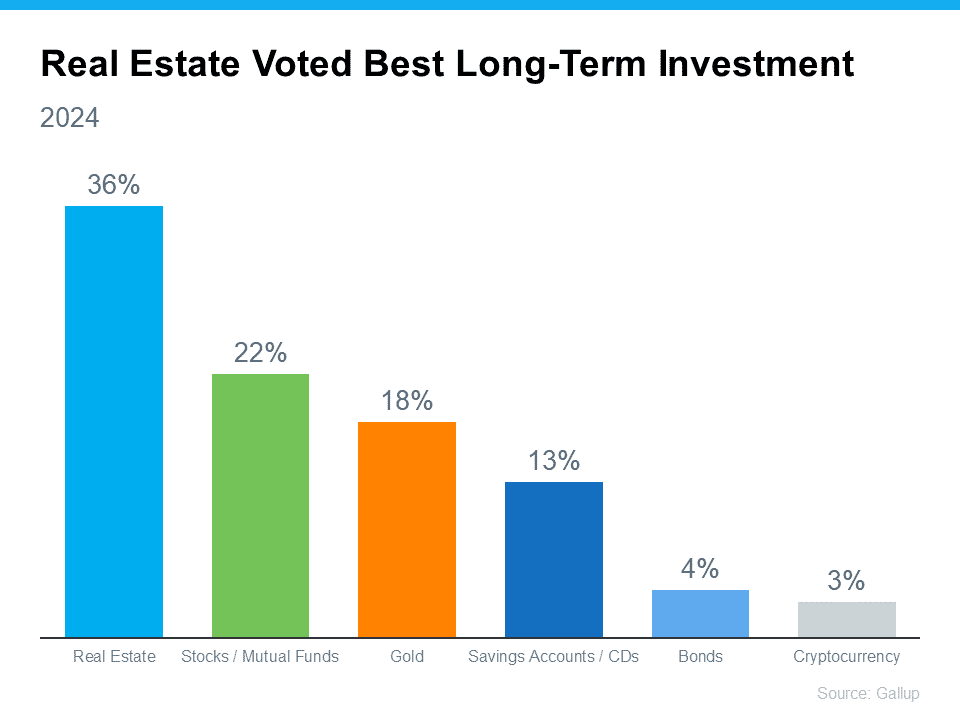Real estate has consistently been regarded as a reliable and profitable long-term investment option. Its appeal stems from several key factors: the ability to generate consistent income, protection against inflation, and the potential for significant capital appreciation over extended periods.
Unlike intangible assets such as stocks and bonds, real estate provides investors with a physical, tangible asset that can be directly observed and managed. This holds particularly true in sought-after destinations like Bali, Indonesia, where the property market has shown remarkable resilience and growth potential.
The Enduring Appeal of Real Estate
Real estate has consistently outperformed other investment vehicles over extended periods. According to a Gallup poll conducted in 2023, 35% of Americans consider real estate the best long-term investment, surpassing stocks, gold, and savings accounts. This sentiment is echoed globally, with investors recognizing the stability and potential for appreciation that property investments offer.

Key Factors Contributing to Real Estate’s Dominance
- Tangible Asset Value: Real estate provides a physical asset that can be seen, touched, and utilized. Unlike stocks or bonds, property investments offer a tangible asset that can generate income through rentals while potentially appreciating in value over time.
- Hedge Against Inflation: Property values and rental income tend to increase with inflation, making real estate an effective hedge against rising prices. This characteristic helps preserve the purchasing power of your investment over the long term.
- Portfolio Diversification: Including real estate in an investment portfolio helps spread risk across different asset classes. This diversification can lead to more stable returns and reduced overall portfolio volatility.
- Tax Benefits: Many countries offer tax advantages for real estate investors, including deductions for mortgage interest, property taxes, and depreciation. These benefits can significantly enhance the overall return on investment.
Bali: A Prime Example of Real Estate Investment Potential
Bali, known as the “Island of the Gods,” has emerged as a hotspot for real estate investment in recent years. The island’s unique blend of natural beauty, rich culture, growing tourism industry has created a robust property market with promising long-term prospects.
Over the past five years, property prices have shown an impressive average annual growth of 20%. For investors, rental yields have been quite attractive, ranging between 6-8% per year for properties in prime locations. For non-Indonesian buyers, there are options available such as leasehold and right-of-use titles, making foreign ownership more accessible.
Factors Driving Bali’s Real Estate Market
- Tourism Growth: Bali’s tourism industry has been a significant driver of its real estate market. In 2019, before the pandemic, Bali welcomed over 6 million international visitors. As tourism rebounds post-pandemic, demand for both short-term rentals and long-term accommodations is expected to surge.
- Infrastructure Development: The Indonesian government has been investing heavily in Bali’s infrastructure, including the expansion of Ngurah Rai International Airport and the development of new highways. These improvements enhance the island’s accessibility and attractiveness to both tourists and investors.
- Digital Nomad Influx: Bali has become a popular destination for digital nomads and remote workers, creating a new segment of long-term renters and potential property buyers. This trend is expected to continue, further boosting demand for real estate.
- Limited Land Supply: As an island, Bali has a finite amount of developable land. This scarcity, combined with growing demand, is likely to drive property values higher over time.
Investment Strategies in Bali’s Real Estate Market
- Vacation Rentals: Investing in properties suitable for short-term rentals can yield high returns, especially in popular tourist areas like Seminyak, Canggu, and Ubud.
- Long-Term Rentals: Properties in expat-favored areas like Sanur and Jimbaran can provide stable income through long-term leases to expatriates and digital nomads.
- Land Banking: Purchasing undeveloped land in up-and-coming areas can offer significant appreciation potential as Bali continues to develop.
- Luxury Villas: High-end properties in exclusive locations like Uluwatu and Nusa Dua cater to wealthy tourists and investors, potentially offering substantial returns.
Conclusion
Real estate continues to prove its worth as a superior long-term investment option, offering stability, potential for appreciation, and passive income generation. Bali, with its unique market dynamics and growth potential, exemplifies the opportunities available in strategic real estate investments. As with any investment, thorough research and due diligence are crucial to success in the Bali property market. By carefully considering factors such as location, property type, and market trends, investors can position themselves to benefit from the enduring value of real estate in one of the world’s most captivating destinations.




